Plenary Speakers
Prof Gilberto CAMARA
INPE, Brazil
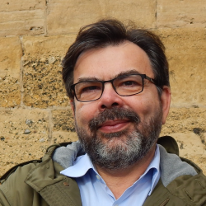
Prof. Gilberto Câmara is a researcher in Geoinformatics, Spatial Analysis and Land Use Change at Brazil's National Institute for Space Research, where he was General Director (2006-2012). He is internationally recognized for promoting free access for geospatial data and for setting up an efficient satellite monitoring of the Brazilian Amazon rainforest. Gilberto has advised 53 graduate students and published 150 papers, that have been cited more than 8000 times (Google Scholar). He has received a Dr. Honoris Causa from the University of Muenster, a Chevalier (Knight) of the Ordre National du Mérite of France, the Global Citizen Award of the Global Spatial Data Infrastructure Association, and the Pecora Award from USGS and NASA.
William CHEUNG
Institute for the Oceans and Fisheries, University of British Columbia, Canada
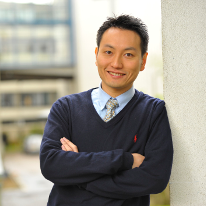
Dr William Cheung is an Associate Professor at the Institute for the Oceans and Fisheries, UBC. He is the Director (Science) of Nippon Foundation-UBC-Nereus Program. He works on various interdisciplinary research projects with global collaboration networks including UK, Australia, Kenya, China and USA. William’s main research area is on assessing the biophysical and socio-economic vulnerabilities and impacts of climate change and other human stressors on global and regional marine ecosystems and fisheries, and identifying mitigation and adaptation options. His research examines global patterns and general theories related to the responses and management of biophysical and socio-economic systems under global change, and apply the findings to research at regional and local scales. His work contributed significantly to understanding how climate change is affecting marine fisheries. He participates as Lead Author in various high level international assessments, such as the Fifth Assessment Report of the Intergovernmental Panel on Climate Change (IPCC), Global Biodiversity Outlook (GBO) and Intergovernmental Platform on Biodiversity and Ecosystem Services (IPBES).
David COOPER
Secretariat of the Convention of Biological Diversity
Sandra DIAZ
National University of Cordoba, Argentina
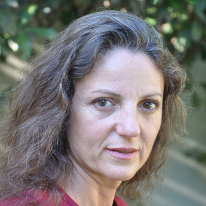
Sandra Díaz is Professor of Community and Ecosystem Ecology at Córdoba National University, and Investigador Superior (the highest academic position in the Argentine National Research Council, CONCET). She is the founder and director of the international initiative Núcleo DiverSus on Diversity and Sustainability. She is interested in plant functional traits and general patterns of functional specialization, their interactions with global change drivers and their effects on ecosystem properties. She has had a strong influence in the theoretical development and practical implementation of the concept of functional diversity and how it affects ecosystem properties and the benefits that different people derive from them. She has authored more than 150 scientific publications, many of them in leading academic journals. She is a member of the Academies of Science of Argentina, USA, France and the Developing World (TWAS), an Honorary Fellow of the British Ecological Society and a Fellow of the Ecological Society of America. She is a co-founder and co-leader of TRY, the Global Communal Plant Trait Initiative. She has served in leading positions in IPCC the Millennium Ecosystem Assessment and DIVERSITAS. She is part of the Science Committee of the ICSU integrated science initiative Future Earth. She is a member of the Multidisciplinary Expert Panel of the Intergovernmental Platform on Biodiversity and Ecosystem Services (IPBES), where she has had a prominent role in leading the IPBES Conceptual Framework.
Luc DOYEN
Université de Bordeaux, France
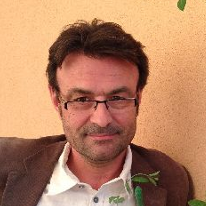
Luc Doyen, Doctor in applied mathematics, has received an education in control theory, optimisation and mathematical economics. He currently holds a permanent position of Director of Research at the CNRS (Centre National de la Recherche Scientifique), where he is especially involved in bio-economic modelling, viable management of biodiversity and mathematics of sustainability. He is now affiliated to the Gretha (Research Group Theoretical and Applied Economics) at the University of Bordeaux after spending 10 years in a laboratory dedicated to ecology and conservation biology at the Museum of Natural History in Paris. His international publications, his network of collaboration, his supervision and teaching activities emphasise both the scientific excellence, the international dimensions and the interdisciplinarity of his work at the interface between economics, ecology, mathematics and computer sciences. The applied component of his research relies on contracts and grants pointing out the transfer of the theoretical results toward national or international institutions such as INRA, IFREMER, CGIAR, CSIRO regarding the management and scenarios of agriculture, fisheries and more generally biodiversity. He is reviewer of numerous international journals and has participated to various national and international committees for the evaluation of research. In particular, he is currently president of the Resource Modeling Association (RMA). Luc Doyen also organised in 2013 a quarterly thematic program at IHP (Institute Henri Poincaré) entitled "mathematics of bio-economics" in the framework of the international event MPE 2013 (Mathematics of Planet Earth 2013). Luc Doyen also belongs to the Scientific Committee of the flagship program "scenario modelling and biodiversity" for the FRB (Fondation Recherche Biodiversité) which emphasises his involvement and his skills on key issues of IPBES between science, decision support and governance. He is also the leader of the international network SEAVIEW funded by Belmont Forum.
Prof Karen J. ESLER
Stellenbosch University
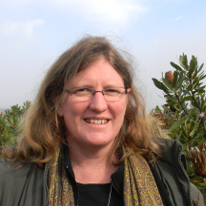
Karen J. Esler is Professor in the Conservation Ecology & Entomology Department, Stellenbosch University. Her fields of research include ecological restoration, vegetation ecology, biological invasions, conservation ecology and socio-ecological systems. Her transdisciplinary research acknowledges the need for diverse perspectives to enhance understanding of complex social-ecological challenges and is increasingly advocated as a way to bridge the “knowing-doing gap” for sustainable actions. In her research, Prof Esler simultaneously navigates disciplinary depths in ecology to work across disciplines allowing her to contribute to inter-disciplinary and applied spaces. She has considerable experience in population and community ecology of semi-arid vegetation, an overall goal of her research being to understand how drivers of change (climate change, over-exploitation, habitat fragmentation and alien invasion) influence population and community structure and processes in fynbos, karoo and riparian vegetation. The applied aspect of this work has been to advise on aspects of best-practice management, restoration and conservation. Prof Esler has a particular interest in linking research and management. She has been a core team member of the DST-NRF Centre of Excellence for Invasion Biology since its inception and is currently head of the Department of Conservation Ecology & Entomology at Stellenbosch University.
In her talk, "Transdisciplinarity in ecological restoration: scaling up, drilling down", Karen Esler will focus on the development and use of a systems dynamic model and a risk/return economic decision-making framework to determine whether markets can, and under what conditions, provide support for ecological restoration.
Simon FERRIER
CSIRO, Australia
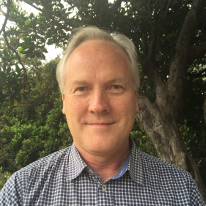
Simon Ferrier is a Senior Principal Research Scientist with CSIRO (Australia’s national science agency), an Adjunct Professor at the Australian National University, and an Honorary Fellow at the United Nations Environment Programme World Conservation Monitoring Centre. Before joining CSIRO in 2008, Simon spent more than 20 years working with state government agencies in New South Wales, during which he was an early pioneer in the development of species and community distribution modelling, and of techniques for employing such models in conservation prioritisation and planning. Throughout the 1990s and early 2000s he worked extensively with conservation practitioners, planners and stakeholders in applying these approaches to a wide range of assessment and decision-making activities across that state. More recently Simon and his CSIRO team have been developing a new generation of macroecological approaches to biodiversity modelling and conservation assessment, and applying these techniques at regional, national and global scales to assess past-to-present change in the status of biodiversity, project impacts of future scenarios of climate and land-use change, and evaluate the potential effectiveness of alternative policy and management options in ameliorating these impacts. He is also actively involved in a number of initiatives promoting and guiding efforts in biodiversity modelling and assessment globally, including co-chairing the Intergovernmental Platform for Biodiversity and Ecosystem Services (IPBES) Methodological Assessment of Scenarios and Models.
Jacques GIGNOUX
Centre national de la recherche scientifique (CNRS), France
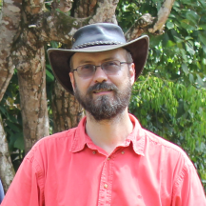
Jacques Gignoux is a research scientist at the Institute of Ecology and Environmental Sciences in Paris. His fields of expertise are tropical savanna ecology, ecosystem functioning and simulation modelling applied to complex systems. He is co-leader of a research group entitled 'Integrated ecology: from ecosystem processes to ecosystem services'. His interests are in finding general practical ways of coupling independent sets of knowledge on ecosystem function into sensible models applicable for scientific exploration as well as decision making in environmental issues. He is currently coordinator of the Belmont-Forum funded project 'Impact of human drivers on biodiversity in savannas'
Thomas HICKLER
Biodiversität- und Klimaforschungszentrum, Germany

Prof. Hickler is a Biogeographer at the Senckenberg Biodiversity and Climate Research Centre (BiK-F) and the Goethe University in Frankfurt/Main, Germany. His work integrates bio- and geoscience approaches for simulating past, present and future interactions between biodiversity, ecosystems and climate at local to global scales, with a focus on terrestrial systems. Also in collaboration with social scientists, he increasingly addresses ecosystem services.
Prof Satoshi ISHIKAWA
Research Institute for Humanity and Nature (RIHN), Japan
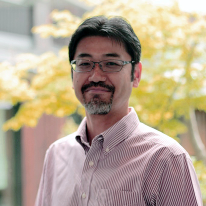
Satoshi Ishikawa is Professor at the Research Institute for Humanity and Nature (RIHN), and Project Leader for the Area-Capability Project of RIHN.
Prof Ishikawa's original research topic was population genetics of fisheries species. He examined reproducible population structures of many marine and fresh water species distributed in Japan and Southeast Asia in order to establish rational resource management measures. Later, he conducted academic research on the harmonisation between resource management and rural development, particularly in Southeast Asian Countries. His current interest is to create new concepts and approaches to solve global environmental problems through rural development activities, especially biodiversity losses, correlating with improvement of quality of live in rural areas. In this connection, he advocates the importance of enhancing “Area-capability” through effective natural resources utilization by local communities. The “Area-capability” can be a new concept for evaluation of “development” instead of GDP increase.
He has been conducting trans-disciplinary research activities at Japan, Thailand and Philippines with local communities, NGOs and governments.
Paul LEADLEY
Université Paris-Sud, France
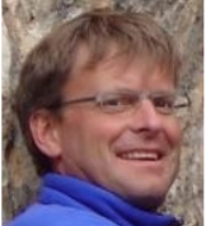
Paul Leadley's research focuses on the impacts of global change, especially climate change and rising CO2 on ecosystem functioning and plant diversity in terrestrial ecosystems,on the interactions between biodiversity and ecosystem functioning and modeling nutrient competition between plants as well as rhizosphere interactions between plants and soil micro-organisms. This research is based primarily on field experiments and mathematical models. His research employs multi-model comparisons and model-data comparisons to quantify uncertainty in projections of global change impacts on terrestrial ecosystems.
Manfred LENZEN
University of Sydney, Australia
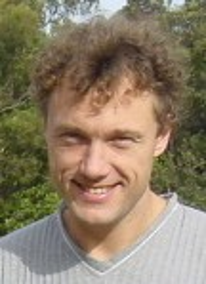
Manfred Lenzen is Professor of Sustainability Research with the ISA group in the School of Physics at the University of Sydney. He has a PhD in Physics and 20 years of experience in renewable energy technologies, life-cycle assessment, and carbon footprinting. His current research interests revolve around the application of input-output analysis to global environmental problems. To this end he has recently published an article about international trade driving global species threats in the journal Nature. He currently leads research initiatives aimed at developing collaborative research platforms for building large-scale global trade databases that enable biodiversity footprint analysis across global supply chain networks. His work routinely employs high-performance computation. He is Associate Editor for the Journal of Industrial Ecology, and is the Editor-in-Chief of the journal Economic Systems Research.
Martin QUAAS
Christian-Albrechts-Universität zu Kiel
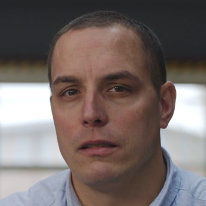
Martin Quaas is professor of Economics at the Faculty of Business, Economics, and Social Sciences of Kiel University. He got his PhD in Economics from the University of Heidelberg and worked as a postdoctoral researcher at the Department of Ecological Modelling at the Helmholtz Centre for Environmental Research - UFZ, Leipzig and the Department of Economics at Tilburg University, Netherlands. Martin Quaas' field of specialization is Environmental, Resource, and Ecological Economics. He is leading an interdisciplinary research group that unites recognized experts in the fields of economics and marine ecology, and has published widely both in leading economic journals and natural science journals.
Ian RUSHWORTH
EZEMVELO KZN Wildlife, South Africa
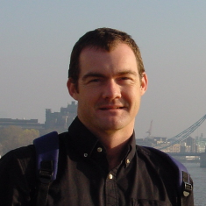
Ian has a M.Sc. in Conservation Biology from the University of Cape Town and 23 years of experience in nature conservation science in southern Africa. He currently manages the Ecological Advice Division within Scientific Services of Ezemvelo KZN Wildlife, the agency responsible for conservation in the KwaZulu-Natal province of South Africa. Responsibilities include managing a team of ecologists and technicians that provide ecological advice for the management of over 40 protected areas (including the Maloti-Drakensberg Park World Heritage Site), scientific input into species and habitat conservation programmes, preparation of invasive species management plans, implementation of biological monitoring, and coordination of research in protected areas. His specialty is the integration of science into conservation management, and on ensuring that decision making is based on the best available information; his contribution to this conference is on providing perspectives to help ensure that scenario and ecosystem modeling meets the needs of practitioners tasked with managing biodiversity and ecosystems.
Yunne-Jai SHIN
Institut de recherche pour le développement, France
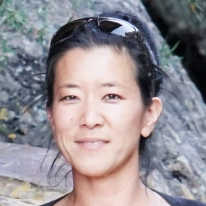
Yunne Shin is a marine ecologist, Director of Research at IRD (Institut de Recherche pour le Développement, France) and Honorary Research Associate at UCT (University of Cape Town, South Africa). Her research focuses on the integrated functioning of fish communities and marine ecosystems under global change, with an expertise in ecosystem models and indicators. She has developed the regional ecosystem model OSMOSE and end-to-end models, allowing the simulation of biodiversity scenarios that combine the top-down and bottom-up effects of fishing and climate change. She is currently involved in different international programs for the global assessment of biodiversity and the Ecosystem Approach to Fisheries, co-chairing the IOC/EuroMarine "Indicators for the Seas" (IndiSeas) program, and participating in the GOOS Biology and Ecosystems Panel, and in the IPBES global assessment of biodiversity and ecosystem services as a Coordinating Lead Author.
Britaldo S. SOARES-FILHO
Universidade Federal de Minas Gerais
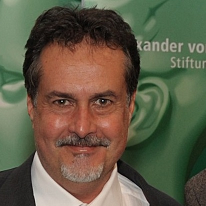
Dr. Britaldo Silveira Soares-Filho is full professor at Department of Cartography of the Federal University of Minas Gerais (UFMG). His research focuses on environmental modeling applied to policy design and evaluation of policy choices. Dr. Soares-Filho and collaborators have developed integrated simulations of land-use changes in tropical forest regions to assess the impacts of policy scenarios on climate, river regime, carbon balance, forest fires, agriculture and forestry rents, and biodiversity. The economic and ecological integrated modeling platforms his team developed have been applied to helping answer several key policy questions facing Brazil. In this respect, Dr. Soares-Filho has worked closely with NGOS and government agencies helping develop sound policies aimed at reconciling countrywide conservation with sustainable rural development. Policy applications include studies on REDD+ (Reducing Emissions from Deforestation and Forest Degradation), impacts of infrastructure development on ecosystem services, economic evaluation of forest concessions, effectiveness of Amazon protected areas, Brazil’s Forest Code, the national market for trading forest certificates, low-carbon agriculture development, cattle ranching intensification, and Brazil’s NDC (Nationally Determined Contributions). Dr. Soares-Filho also coordinates the development of DINAMICA EGO software (www.csr.ufmg.br/dinamica), an environmental modeling freeware used by many scholars worldwide.
In his talk, Environmental modeling in support of sound policy development, he will describe applications of environmental modeling to help answer several key policy questions now facing Brazil, from infrastructure development, Forest Code implementation, agriculture expansion, to cattle ranching intensification, and the potential impacts of land-use policies on GHG emissions and ecosystem services.
Prof Bernardo B. N. STRASSBURG
International Institute for Sustainability, Brazil
E. VIVEKANANDAN, PhD
Bay of Bengal - Intergovernmental Organisation, India
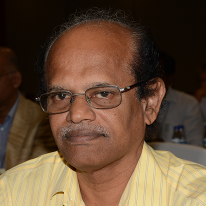
Dr E. Vivekanandan acquired M.Sc. degree (Marine Biology, Annamalai University, India) in 1972 and Ph.D. degree (Fish Energetics, Madurai University, India) in 1976. He joined Indian Agricultural Research Service as Scientist in Central Marine Fisheries Research Institute in 1976. Since then, he served as Senior Scientist and Principal Scientist and in different capacities. His core areas of research were fish stock assessment and management, marine ecosystem modeling and valuation, marine mammals, and climate change. His contributions include valuation of ecological and economic consequences of human-induced impacts on marine fisheries and seagrass ecosystem in the Arabian Gulf of Saudi Arabia; and the effect of management measures on the coastal fisheries in India; and linking these valuations to policy decisions. He has associated with several regional organisations and is a regional trainer for Ecosystem Approach to Fisheries Management and Science Communication for the Bay of Bengal Large Marine Ecosystem project. He was Chief Editor, Journal of Marine Biological Association of India during 2008-2011. He has supervised Ph.D. research programmes and five students acquired doctoral degree of Madras University (India) under his guidance. He has authored 157 publications, which include 67 research papers in peer-reviewed journals, 15 books/chapters and a number of national and international technical reports. At present, he is National Consultant, World Bank Ocean Partnership on Sustainable Fisheries and Biodiversity Conservation – Bay of Bengal Project.
In his talk, "Consequences of human impacts on ecosystem service delivery in Bay of Bengal", he will share his experiences and work on sustainable fisheries and biodiversity conservation in the Bay of Bengal Project.
Ass Prof Brendan WINTLE
University of Melbourne, Australia
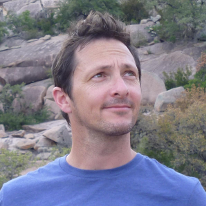
Brendan is a conservation ecologist, Associate Professor and ARC Future Fellow at the University of Melbourne, Australia. He is interested in uncertainty and the role of models and scenarios in conservation decision making. Currently, he is coordinating and teaching 3rd year Applied Ecology at Melbourne University. He is Deputy Director of the Australian Government's National Environmental Science Programme Threatened Species Recovery Hub (NESP TSR), and a theme leader in the Australian Research Council Centre of Excellence for Environmental Decisions. Brendan publishes on technical and policy issues around conservation and natural resource management, including optimal conservation investment, optimal monitoring and adaptive management, systematic conservation planning, population viability analysis, and habitat modelling and mapping. In his spare time, he likes walking in the bush, looking at animals and plants and playing football.
Prof Tian-Xiang YUE
Chinese Academy of Sciences, China
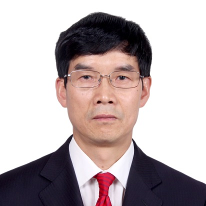
Tian-Xiang Yue is Professor at the State Key Laboratory of Resources and Environment Information System, Head of Department for Ecological and Environmental Information Sciences, Institute of Geographical Sciences and Natural Resources Research, Chinese Academy of Sciences, and the Chair of Geoinformatics, at the University of Chinese Academy of Sciences. He has been working as a leading professor at State Key Laboratory of Resources and Environment Information System, Institute of Geographical Sciences and Natural Resources Research, Chinese Academy of Sciences. Since 1990, he has innovatively been developing the high accuracy and speed method (HASM) for surface modelling to give solutions to error problem, slow-computational-speed problem and multi-resolution problem which long troubled surface modelling. HASM has been successfully applied to simulating surfaces of elevation, soil properties, changes of biodiversity and ecosystem services, and driving forces of the changes as well as analysing ecosystem responses to climatic change. In all these applications, HASM produced more accurate results than the classical methods. In 2016, a Fundamental Theorem of Earth Surface Modelling (FTESM) is abstracted on the basis of all the applications of HASM in last 25 years. From FTESM, seven corollaries have been deduced, corresponding to interpolation, upscaling, downscaling, data fusion and data assimilation respectively.
In his presentation, "Surface modelling of biodiversity and ecosystem services", he will introduce progress in a method for high accuracy surface modelling (HASM) as well as its applications to simulating biodiversity and ecosystem services as well as driving forces of their changes.

